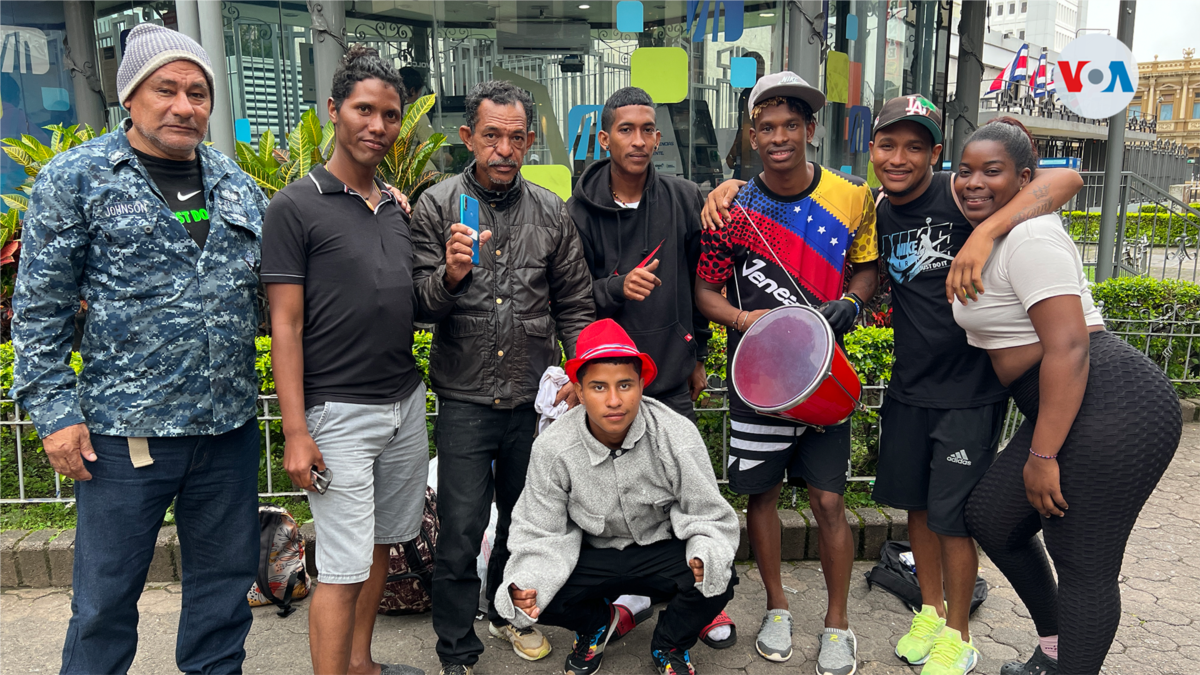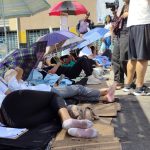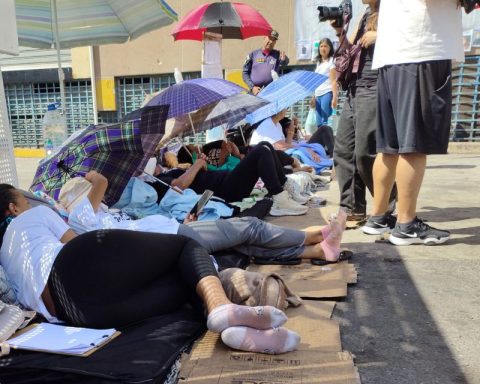A drum that they acquired in a small auction accompanies six Venezuelan migrants who decided to leave their country fleeing the political and economic crisis with the hope of reaching the United States to fulfill “the American dream” as they call it.
Initially the idea of having this musical instrument was to encourage each other during the difficult journey that they were warned they would have to cross the Darién jungle, but they point out that according to the experiences in the place they composed a song that is what they have chanted from Colombia to Costa Rica, where they are currently found.
“Tasty Toronto… if I cross the Darien, I’ll see myself in the yunaites… we pass the jungle where millions pass, but others stay,” they chant.
This initiative has served them to obtain money. As they sing, they place a hat on the floor and people put down cash.
“Sometimes we eat with this, but we also support each other to follow this transit,” he tells the voice of america the young Samuel Ríos, originally from the town of Río Chico, a Venezuelan city located in the center-east of the state of Miranda, Venezuela.
Ríos had composed a couple of songs in Venezuela and is the one who leads the migrant team.
“In the Darién many people wanted to die when they passed by and with this (drum) we motivated them. We were trying to get people excited about this. We danced,” adds Ríos.
Venezuelan migrants must pay 150 dollars to cross Nicaragua
This group of migrants decided to make a pronounced pause in Costa Rica to collect $150 each to pay what the Nicaraguan immigration authorities ask them to cross the country irregularly and continue to the United States.
According to Ríos, they had not found at another point of their journey another country that charged them for crossing a country irregularly.
Previously, migrants -except nationals- did not pay more than the cost of the “coyote” who is the person who crossed them irregularly to Nicaragua and the sum did not rise to 50 dollars.
But the Nicaraguan authorities reformed in August 2020 the General Law of Migration and Aliens stipulating a fine of 150 dollars for the “entry and exit through an unauthorized border post”.
“Thank God that we have that instrument and with that we have come out ahead. People help us a lot to collect the required money and move on”, adds Estefanía Martínez, who is part of the band. Martínez says he has great expectations when he arrives in the United States.
“I hope to be able to buy my little house and send money to my family,” he says.
In the bus terminals of San José, in Costa Rica, there is a drama with the people who spend the night in the surroundings to collect the money for the bus that takes them to the border, but also to pay the 150 dollars.
At bus terminal 710, transportation leaves for San Carlos, one of the points from which migrants enter Nicaragua.
The migrants have pitched tents and some are sleeping rough until they get the money they need.
“We have no other option. During the day I sell candies and at night I ask for money to complete what is required,” says another migrant who camps in San José.
The precision of the migrants who transit irregularly through Costa Rica is not clear, however, according to data from the Embassy of the Bolivarian Republic of Venezuela, not related to Nicolás Maduro, from January to July of this year more of 28,000 migrants through Costa Rica.
Connect with the Voice of America! Subscribe to our channel Youtube and turn on notifications, or follow us on social media: Facebook, Twitter and Instagram


















